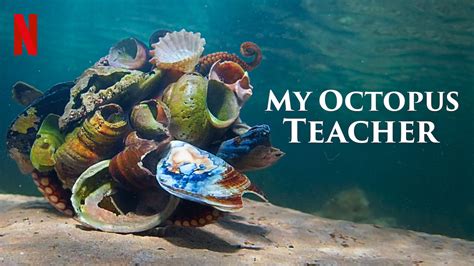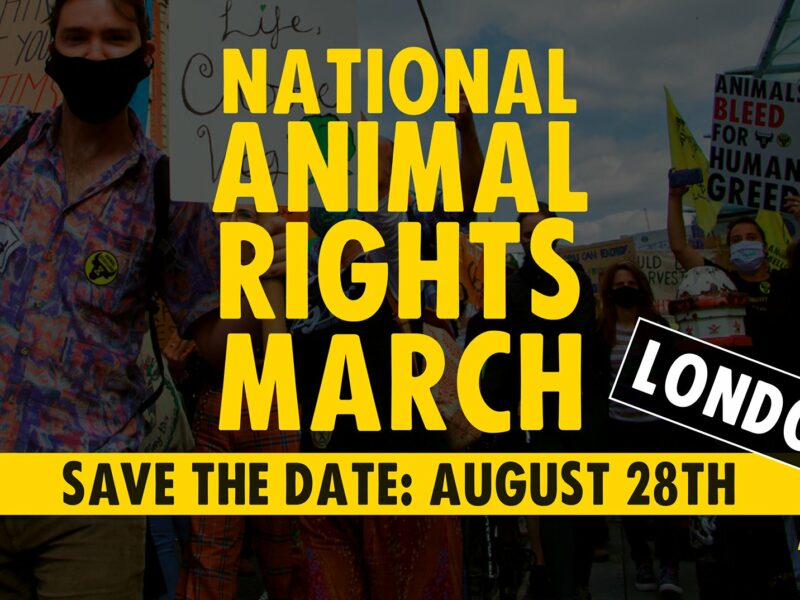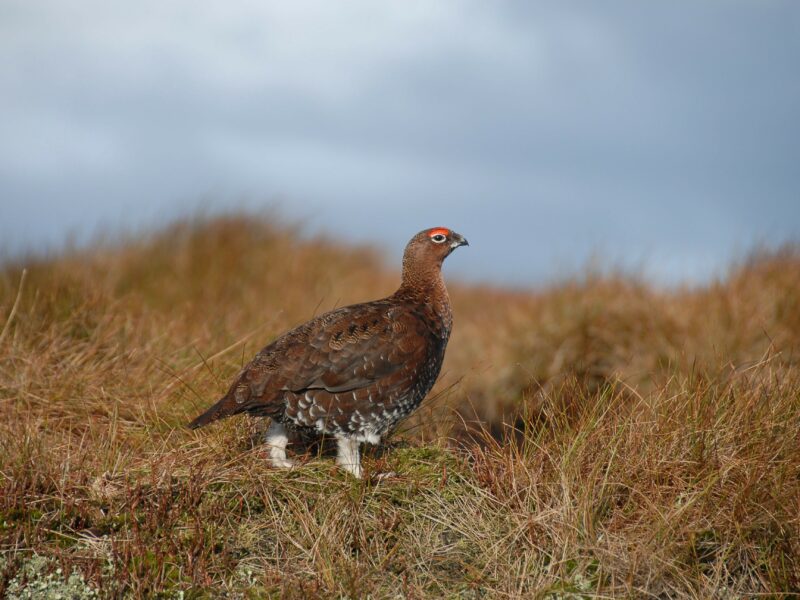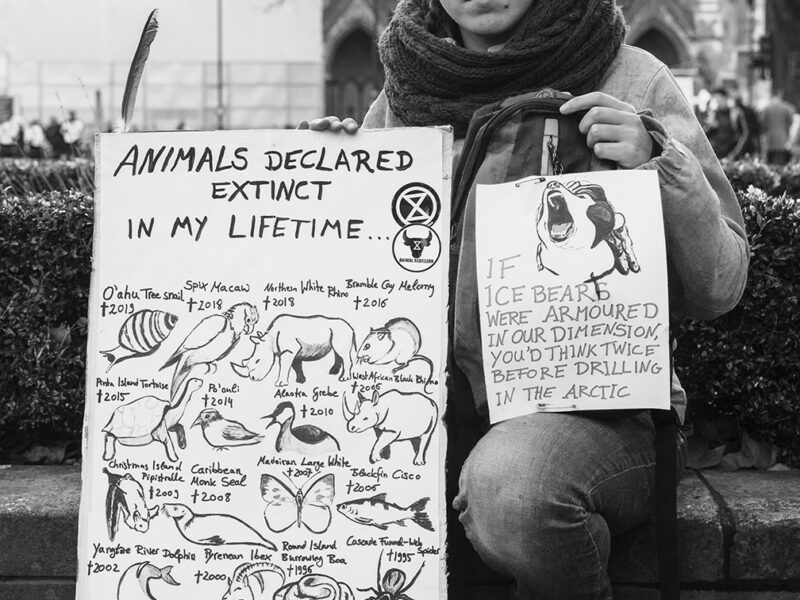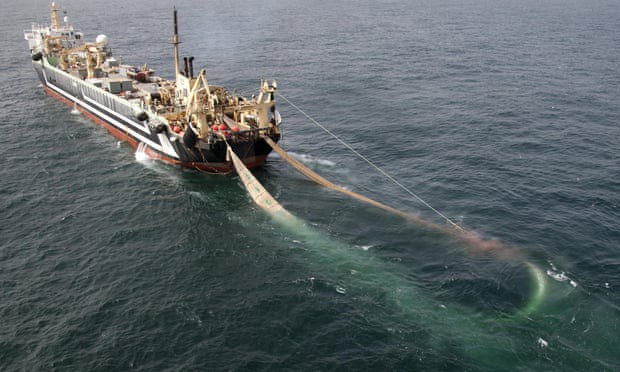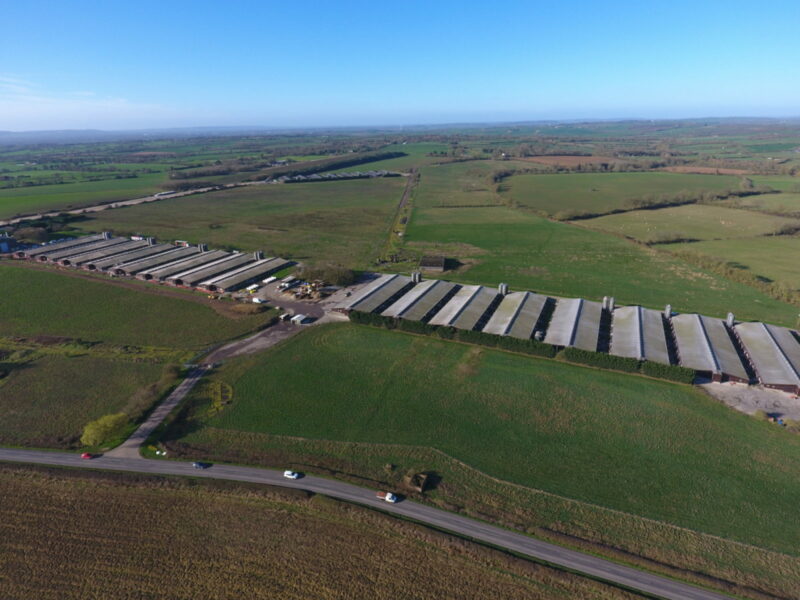Universities, the sources of a great deal of the Global North’s scientific study and revolutionary thought, are once more bearing witness to demands for system change. The system in question this time? The unjust, unsustainable food system characterised by the meat, fishing, and dairy industries. This is the system that drives Amazon deforestation1, contributes a staggering amount of greenhouse gas emissions2, leaves 805 million of the world’s most vulnerable people hungry3, whilst simultaneously slaughtering trillions of animals needlessly each year4. The oldest university in the English-speaking world, Oxford, has published several papers exploring and explaining the environmental benefits of transitioning to plant-based foods5. Besides this, dozens of British universities have declared a climate emergency, evidently these institutions are recognising the[…]
How does one octopus teach us to reconnect with animals?
Finally, you see her. She is looking at you. Cautious yet curious – you are a new creature in her world. An orphan, she goes her own way, creating ever-changing costumes to fit the various situations she finds herself in, navigating her complex environment. Nobody taught her how to behave, yet she thrives, learning quickly. She innovates. When you first encountered her, she was so shy she hid herself beneath an improvised shield. Discreet, she scrutinised you with one of her keen eyes. Always eager to learn, perhaps she wondered: are you a threat? Plunging in clear water to clear your mind from the chaos of the world, and here you are – meeting her. Entering her world of mesmerizing[…]
Why Animal Agriculture must be on the COP 26 agenda
The United Nations Climate Change Conference, COP 26, will be kicking off in a week´s time, where world leaders will meet to discuss how they plan to limit global warming to 1.5 degrees, an ambitious target which the Intergovernmental Panel on Climate Change has said will require drastic action. The stakes couldn’t be higher.
Why We Are Marching To Unilever
The Animal Rights March is passing near the headquarters of Unilever on the 28th of August 2021, to ask the corporate giant to make changes towards a just and sustainable plant-based food system. The mega-company branches over 190 countries and possesses brands of food items, home and personal care products. We are surrounded by Unilever products. In 2018 Unilever’s annual revenue was 20.62 billion euros. Unilever contributes to animal agriculture and animal abuse through several means. That’s why we gather at its headquarters to show unity for animal justice and propose solutions. For cows and their babies Almost all major ice-cream brands that use dairy are owned by Unilever. A few brands, such as Magnum and Ben’n’Jerry, have introduced plant-based[…]
Animal Rebellion is challenging G7 power holders
Every year heads of seven industrialised nations (plus two representatives from the EU, and guest/invited countries), who collectively own over 58% of global net wealth meet at the Group of Seven (G7) conference. They claim their goal is discuss and resolve global challenges. Despite said intentions, 46 years have gone by since the G7 coalition was formed, human economic activities led by G7 countries have degraded the Earth`s ecosystems pushing through some of the Planetary boundaries and set off the Climate and Ecological Emergency. The truth which G7 leaders avoid is that they are failing to fulfill their assigned role to protect lives and planetary health for generations to come. This includes the G7 Food Security Working Group’s failure to[…]
Animal Rebellion Prepares for a Terrifying Halloween — Climate Justice Movement Demonstrates Against Grouse Shooting
*Originally published 29 October 2020* Have you heard of The Butterfly Effect? No, not the Ashton Kutcher movie but the theory itself. It goes back to 1800, in The Vocation of Man, Johann Gottlieb Fichte says “you could not remove a single grain of sand from its place without thereby … changing something throughout all parts of the immeasurable whole”. The same can be said for our ecosystem- push one section of our natural world too far and the effects can be untold. This Hallo-week, climate justice movements: Animal Rebellion and Extinction Rebellion, are demonstrating to the British and Scottish governments the need to impose legislation that will protect and uphold our homes, habitats and country. This will happen by marking[…]
Animal Rebellion Shuts Down a Manchester Slaughterhouse
*Originally published 7 September 2020* Animal farming is both a health risk and climate risk. In February, SMASH Speciesism locked themselves to concrete and blocked the entrance of Tulip Slaughterhouse, an abattoir in Manchester. The factory was brought to a standstill for 10 hours. SMASH Speciesism urged the factory to transition to a plant-based food production site instead of contributing to the 3000+ pigs they gas and stab each day. SMASH Speciesism is an anti-speciesist, non-violent, direct action group. Eleven members were to be held on trial today (7th September), but the trial was postponed. Today, Animal Rebellion also blockaded the same slaughterhouse, now under the ownership of Pilgrim’s Pride, to stand in solidarity with SMASH Speciesism. They demanded that all slaughterhouse trucks arriving[…]
The Rebellion Has Brought the Climate Crisis to the Forefront… Now It Is Time to Address Speciesism
So far Extinction Rebellion and Animal Rebellion have had so much to celebrate. They have achieved great things. Before Extinction Rebellion, the existential threat climate change poses wasn’t widely discussed in popular culture or taken seriously. In the space of a few months XR changed the tone of that conversation forever. This is a massive shift and a great achievement that we can take pride in. We can also celebrate its effectiveness Talk must produce results, and as I write this there is an election coming and climate change is now an election issue even for mainstream parties. Also, the UK government plans a citizens’ assembly to look at the climate emergency (albeit watered down from what has been demanded). This is a result![…]
Supertrawlers: The Boats You Didn’t Know Are Ruining Our Seas
*Originally published 4 December 2019* Have you heard of super trawlers before? Super trawlers are massive fishing boats that haphazardly capture, freeze and store thousands of tonnes of fish and other sea life. They are notorious for wiping out fish stocks and contributing to large scale extermination of dolphins, seahorses, whales, and turtles. But their damage doesn’t stop there. Most UK fishing rights are currently in the hands of a few elite. FIVE families, all of whom can be found in the Times Rich List own super trawlers and control 29% of the UK’s fishing quota. Unsurprisingly, over half of the 25 top profiting fishing businesses were involved in evading designated quotas during the Black Fish Scandal, worth over £63m. Supertrawler Margiris[…]
Intensive Animal Farming Operations Are Rapidly Expanding around the UK and DEFRA’s Farm Subsidies Are Largely to Blame
*Originally published 30 November 2019* How is it possible that while there is increasing scientific knowledge and public concern about the catastrophic impact of factory farming on the earth, animals, and human beings, DEFRA (Department for Environment, Food and Rural Affairs) is not reducing, as it should be, but is in fact increasing subsidies for factory farms? A joint investigation by the Guardian and the Bureau of Investigation discovered that factory farm operators were granted approximately £70 million of public money between in 2016 and 2017. The types of operations that received subsidies include: “Feedlot-style beef units, rearing thousands of cattle in outdoor yards; so-called megadairies, with herds of up to 1,800 cows; Intensive egg producers using cage housing systems; poultry megafarms and pig units which[…]


